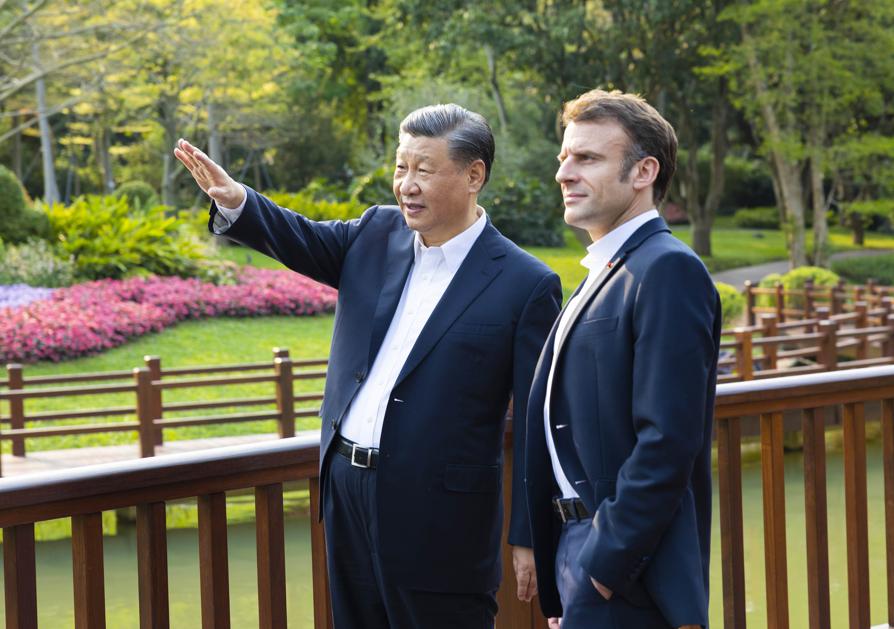Experts discussing Sino-French exchanges

President Xi Jinping has an informal meeting with French President Emmanuel Macron in Guangzhou, capital of Guangdong province, on April 7, 2023. [Photo/Xinhua]
Scholars, researchers, business representatives and students from China and France gathered and shared their vivid stories of Sino-French exchanges on Sunday at a bookstore in Guangzhou, in the wake of French President Emmanuel Macron wrapping up his State visit to China with the capital of Guangdong province as his last stop.
Sino-French exchanges go back more than 300 years, from when a large three-masted sailboat left France's La Rochelle for Guangzhou in 1698, overcoming numerous difficulties on the way.
The sailboat became the first direct passage to Guangzhou from France, marking the beginning of Sino-French maritime trade.
Thierry Meynard, a professor with the department of philosophy of Sun Yat-sen University, said among those onboard was a French mathematician who arrived in China and participated in astronomical observations and measurements with Chinese scientists, and they later introduced Chinese Confucianism, history and geography to Europe through his letters.
Macron's delegation to China included former French prime minister Jean-Pierre Raffarin, who is an old friend of the Chinese people.
Raffarin, who is hailed as the "Mr China" in France, has visited China dozens of times in the previous five decades, including more than 20 visits to Guangdong.
Lin Yao, an independent researcher on China-Europe relations, said Raffarin has a deep affection for Guangzhou.
"Raffarin mentioned in his memoirs he visited China for the first time in 1970 with a delegation of young French politicians and visited multiple cities, including Guangzhou."
Lin said China and France will deepen cooperation in fields of diplomacy, economy and trade, humanities, tourism, culture and sports in 2024, which marks the 60th anniversary of the establishment of formal diplomatic relations between China and France and the Year of Sino-French Cultural Tourism.
Huang Jianhua, former president of Guangdong University of Foreign Studies, also attended the event.
He has engaged in French language cultural translation and teaching for decades. The educator once spent more than 16 years compiling the second edition of the Grand Contemporary Chinese-French Dictionary. The publication of the dictionary with 7.2 million French words and Chinese characters in 2014 helped fill the absence of a large Chinese French dictionary in China.
Huang, 87, has also translated many French books and works into Chinese, contributing to Sino-French exchanges and friendship.
"Ever since I came into contact with France, I established a deep friendship with the European country," Huang said.
Zora Gerault, director of Esmod Guangzhou, the Chinese branch of a French fashion design school, said fashion is a part of culture and is a very important cultural symbol for France.
She said Chinese students at her school can learn both French language and French fashion design skills.
"In this way, students not only draw inspiration from traditional Chinese culture, but also utilize the excellent cultural heritage of France to enhance their creativity," Gerault said.
Guangzhou and Lyon, both ancient, cultural and sporting cities with a history of thousands of years, have been sister cities since 1988.








